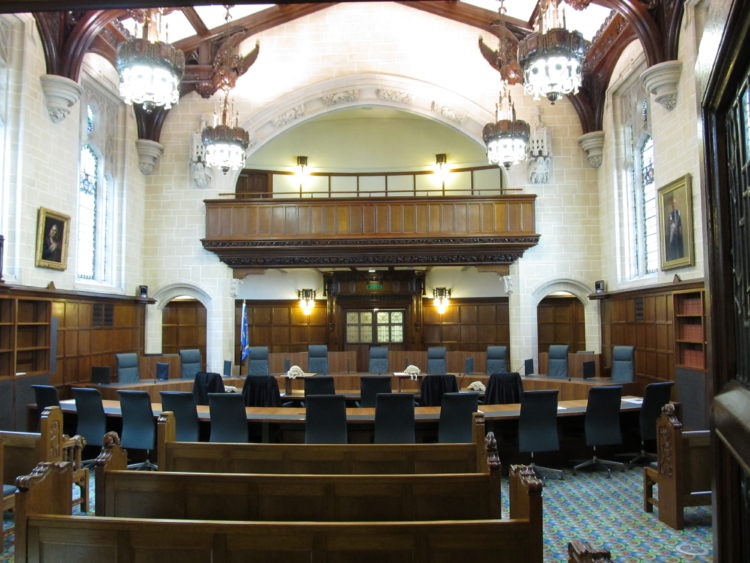By Lucy Caulkett-
The legal Supreme Court drama surrounding the government’s wishes to trigger Article 50 to begin the formal process of leaving the EU has begun.
The Supreme Court has been told that the governemnt was expected to be allowed to trigger Article 50 of the Lisbon Treaty when the referendum was held last June, and that efforts to prevent this is wrong.
Attorney General Jeremy Wright said the government would be making “lawful” use of “fundamental” powers by commencing the legal process of the departure from the EU by triggering Article 50.
The top government lawyer was speaking in response to the High Court ruling against the government that concluded Mp’s must vote before the formal process of Brexit can be triggered. with the hearing expected to last four days and a verdict due in January.
Supreme Court president, Lord Neuberger expressed an appreciation of the public interest in the case and the “strong feelings associated with the many wider political questions surrounding the United Kingdom’s departure from the European Union”.
“This appeal is concerned with legal issues, and, as judges, our duty is to consider those issues impartially, and to decide the case according to the law,” he said.
His comments came as some sections of the mainstream media have sought to closely scrutinised the political proclivities of each of the 11 justices with respect to their personal feelings on the EU
The Supreme Court president added that some of the people involved in the case had received “threats of serious violence and unpleasant abuse in emails and other electronic communications”, warning anyone that such behaviour “undermines the rule of law”.
The case has generated world wide interest, with a full house media very attentive and interested in every word and sentence expressed by lawyers from both sides and those from the justices presiding over the case.
When Britain voted to leave the EU in June, the general understanding by the populace was that the governement will act on the outcome of the biggest voting participation in Britain’s history. In fact, the refrendum was advisory, meaning that Parliament was not bound by the decision of the election, but politicians in their usual evasive style, did not inform the British public accordingly.
Most of the electorate who voted expected the government to act on the outcome, with some skepticism expressed that they would but not many actually forseeing this sort of court case strongly opposing it.
The decision of this case will be announced in January, giving the justices all of Christmas to carefully go through all the arguments made.




